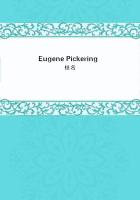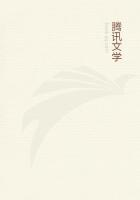I
Of Beauty It is my design to consider beauty as distinguished from the sublime;and,in the course of the inquiry,to examine how far it is consistent with it.But previous to this,we must take a short review of the opinions already entertained of this quality;which I think are hardly to be reduced to any fixed principles;because men are used to talk of beauty in a figurative manner,that is to say,in a manner extremely uncertain,and indeterminate.By beauty I
mean that quality or those qualities in bodies,by which they cause love,or some passion similar to it.I confine this definition to the merely sensible qualities of things,for the sake of preserving the utmost simplicity in a subject,which must always distract us whenever we take in those various causes of sympathy which attach us to any persons or things from secondary considerations,and not from the direct force which they have merely on being viewed.I likewise distinguish love (by which I mean that satisfaction which arises to the mind upon comtemplating anything beautiful,of whatsoever nature it may be)from desire or lust;which is an energy of the mind,that hurries us on to the possession of certain objects,that do not affect us as they are beautiful,but by means altogether different.We shall have a strong desire for a woman of no remarkable beauty;whilst the greatest beauty in men or in other animals,though it causes love,yet excites nothing at all of desire.Which shows that beauty,and the passion caused by beauty,which I call love,is different from desire,though desire may sometimes operate along with it;but it is to this latter that we must attribute those violent and tempestuous passions,and the consequent emotions of the body,which attend what is called love in some of its ordinary acceptations,and not to the effects of beauty merely as it is such.
II
Proportion Not The Cause Of Beauty In Vegetables Beauty hath usually been said to consist in certain proportions of parts.
On considering the matter,I have great reason to doubt,whether beauty be at all an idea belonging to proportion.Proportion relates almost wholly to convenience,as every idea of order seems to do;and it must therefore be considered as a creature of the understanding,rather than a primary cause acting on the senses and imagination.It is not by the force of long attention and inquiry that we find any object to be beautiful;beauty demands no assistance from our reasoning;even the will is unconcerned;the appearance of beauty as effectually causes some degree of love in us,as the application of ice or fire produces the ideas of heat or cold.To gain something like a satisfactory conclusion in this point,it were well to examine,what proportion is;since several who make use of that word do not always seem to understand very clearly the force of the term,nor to have very distinct ideas concerning the thing itself.Proportion is the measure of relative quantity.Since all quantity is divisible,it is evident that every distinct part,into which any quantity is divided,must bear some relation to the other parts,or to the whole.These relations give an origin to the idea of proportion.They are discovered by mensuration,and they are the objects of mathematical inquiry.
But whether any part of any determinate quantity be a fourth,or a fifth,or a sixth,or a moiety of the whole;or whether it be of equal length with any other part,or double its length,or but one half,is a matter merely indifferent to the mind;it stands neuter in the question;and it is from this absolute indifference and tranquillity of the mind,that mathematical speculations derive some of their most considerable advantages;because there is nothing to interest the imagination;because the judgment sits free and unbiassed to examine the point.All proportions,every arrangement of quantity,is alike to the understanding,because the same truths result to it from all;from greater,from lesser,from equality and inequality.But surely beauty is no idea belonging to mensuration;nor has it anything to do with calculation and geometry.
If it had,we might then point out some certain measures which we could demonstrate to be beautiful,either as simply considered,or as relating to others;and we could call in those natural objects,for whose beauty we have no voucher but the sense,to this happy standard,and confirm the voice of our passions by the determination of our reason.But since we have not this help,let us see whether proportion can in any sense be considered as the cause of beauty,as hath been so generally,and by some so confidently,affirmed.If proportion be one of the constituents of beauty,it must derive that power either from some natural properties inherent in certain measures,which operate mechanically;from the operation of custom;or from the fitness which some measures have to answer some particular ends of conveniency.Our business therefore is to inquire,whether the parts of those objects,which are found beautiful in the vegetable or animal kingdoms,are constantly so formed according to such certain measures,as may serve to satisfy us that their beauty results from those measures,on the principle of a natural mechanical cause;or from custom;or,in fine,from their fitness for any determinate purposes.















